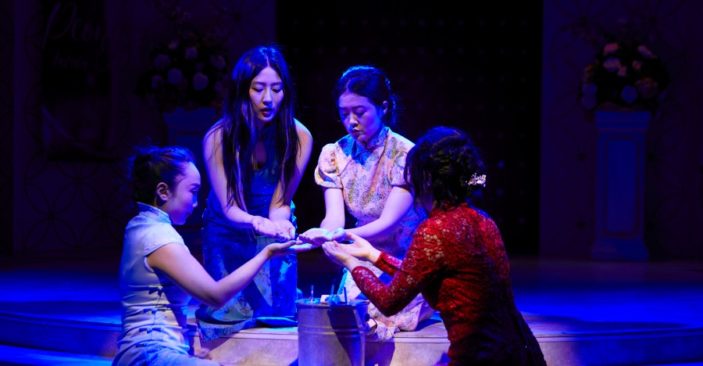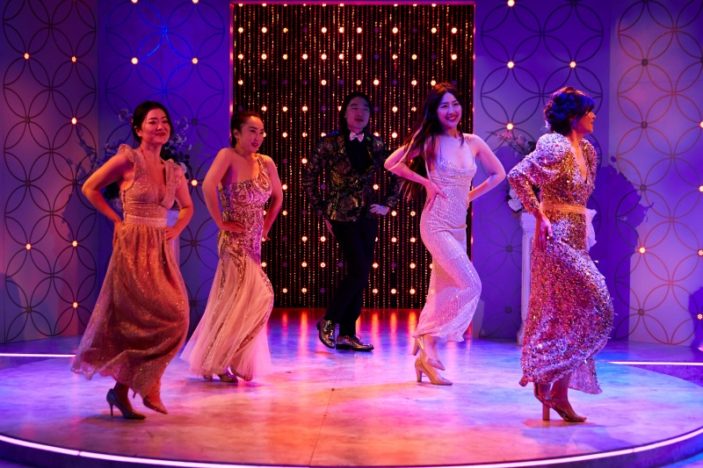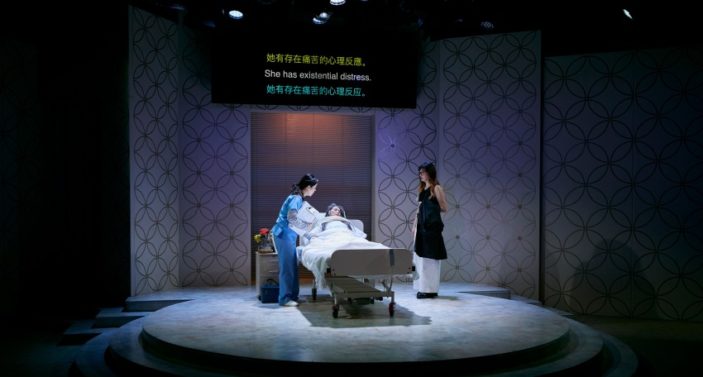
At the tender age of five, my life took a remarkable turn as my family migrated to this sunburnt Australian land from Northern China. Little did I know that this journey would shape the very core of my identity, transforming it forever from the days of my humble industrial neighbourhood in Shenyang.
As the years unfolded, I discovered that my experience wasn’t unique among fellow migrants – we affectionately called ourselves “bananas.” We quickly learned that our upbringing became a dance of authenticity, compromise, and self-expression, all while harmonizing the melodies of Western and Eastern traditions. The cultural clashes we encountered only strengthened our determination to embrace the best of both worlds.
Amidst this beautiful tapestry of cultures, our parents’ expectations often seemed like guiding stars, illuminating the path ahead. However, these parental wishes sometimes diverged from the aspirations of our multicultural Aussie friends and their own families, leading us to chart our own course through the vast sea of possibilities. Yet, it was this very journey, this exploration of self, that infused each day with a profound sense of purpose.
Miss Peony explores that and then some in a heartfelt, hilarious and politically relevant story of a young ABC (Australian-born Chinese) gal named Lily (played incredibly by Stephanie Jack) trying to find herself in the midst of world famous Miss Peony beauty pageant whilst wrestling with the grief of her famed beauty queen grandmother ‘Poh Poh’ Adeline (effortlessly portrayed by Gabrielle Chan) as well as being stuck between two cultures vying to claim Lily’s identity.
Directed with nuance, care and vigour by Courtney Stewart and penned by the illustrious Michelle Law, Miss Peony tells a fun and courageous tale about resilience and self-discovery where we examine how past ideals match with the present social and political climate.
The story is one of family legacy. Lily’s grandmother, once a captivating beauty queen in Hong Kong, remains steadfast in her beliefs despite the passage of time and Lily’s new life in a different country and era. Recognizing her granddaughter’s struggle to balance her dual identities, the spirited yet stubborn ghost of her grandmother, takes it upon herself to guide Lily’s path.
Poh Poh insists that Lily participates in the fiercely competitive Miss Peony pageant, a proposition that Lily tries desperately to avoid. However, navigating the physical and spiritual realms becomes even more challenging as she grapples with the unwavering determination of her beloved, otherworldly grandmother. On top of that, she faces a heap of sassy personalities from her rival contestants in the pageant to the dashing yet confronting MC: Zhen Hua (a seamless performance by Charles Wu) that hosts their trials and tribulations.
Michelle Law has written this story with a nuanced ferocity that has to be commended for its delicate balance in handling such personal and political material with an assortment of fun and heart. Every captivating piece of dialogue that either melts your heart or sends it to pieces, is met with equally hilarious pieces of witty banter and social commentary that reminds you of just how wonderful and important our multicultural world is. Needless to say, the jokes land, and when the drama hits, it hits you like a truck.

What’s truly refreshing about the supporting characters in Miss Peony is how they represent diverse cultural and socioeconomic stereotypes. Their elemental and contrasting personas makes you think all that contrast and clarity is just going to lead to good’ol clashes and drama in order to make the pageant captivating. Yet, as the story unfolds, these supposed rivals form friendships and camaraderie, breaking down initial stereotypes and emphasizing the universal power of unity and compassion, regardless of cultural differences.
It goes without saying that the performances deliver a thousand-fold to immerse you in the cast’s incredible chemistry and character-driven journeys. The fierce Mabel Li plays an equally fierce contestant named Sabrina who’s the woggest wog you’ve ever wogged in the history of wogs. She almost steals the show in her room-commanding comedic social commentary and deadpan dry wit at the situations our contestants find themselves in.
Shirong Wu plays the eccentric nerdy contestant that always has something weird, random and profound to say when the group least expects it. It reminds me of that patient goofy wit of Grandma Georgina in Charlie and the Chocolate Factory where everyone in the room would all respond in agreement that grandpa used to work at the factory and then Grandma Georgina would then blurt out: “I LOVE GRAPES”. It’s a humorous role that can become monotonous if its quirkiness gets ever so slightly overdone. But it’s used to great effect as only the appetising cusp to a complex character that starts to unshed her layers (which applies to every character in this wholesome show).
Deborah Faye Lee, as the businesswoman Marcy, adds sophisticated, shameless capitalist charm with her entrepreneurial ambitions of fusing her beauty and brains to get that coveted Miss Peony title. Charles Wu demonstrates a natural and sublime performances of a man that is more than meets the eye. And of course there’s Gabrielle Chan who you just cannot imagine being anyone else that night at the Belvoir. Stephanie Jack pours her heart and soul into our protagonist’s hopes and insecurities. Everyone’s at their A-game here.
In this theatrical production, a unique device is employed – the use of surtitles for English, Simplified Chinese, and Traditional Chinese simultaneously, owing to the constant language changes delivered by our cast throughout the story. These surtitles are displayed on two shared televisions at the top center of the stage, presenting three rows of sentences, each corresponding to the translated version of the aforementioned languages, following along with the delivery of all lines throughout the play. It serves as a powerful tool to showcase the significance of language in conveying this multicultural story of finding common ground.

However, it can be somewhat merciless if actors deviate from the lines, as the entire audience will see the discrepancies live on the screen. While it adds an innovative touch, it may also feel distracting at times, drawing your attention away from the incredible performances of such talented actors to read translations in crucial moments. The thick bezels of the televisions added to the issue, making the black line cut down the middle in between the two screens even more noticeable. In today’s era where tech companies love marketing how ‘bezelless’ their monitors and televisions are, using a pair of televisions side by side called for a setup with minimal bezels. Otherwise maybe you could’ve done with a projection instead? Coming back to this fascinating theatre device of translation, whether it’s a matter of artistic merit or pragmatism, I’ll leave it to the viewer’s own experience.
There’s a lot to love about Miss Peony. It’s a theatrical masterclass in balancing comedy and drama while presenting characters that are truly likable and defy stereotypes. The play delivers important messages about cultural divides, intercultural racism within the Chinese community, identity, and the significance of embracing differences and understanding one another. With plenty of universal themes that extend beyond its Asian-centric premise, Miss Peony takes audiences on a powerhouse ride. Make sure you don’t miss it.
![]()
![]()
![]()
![]()
![]()
FOUR STARS (OUT OF FIVE)
Miss Peony can now be enjoyed at its final week in Belvoir St Theatre until the 29th of July 2023.
For more information and ticket bookings, head on over to the Belvoir website.
